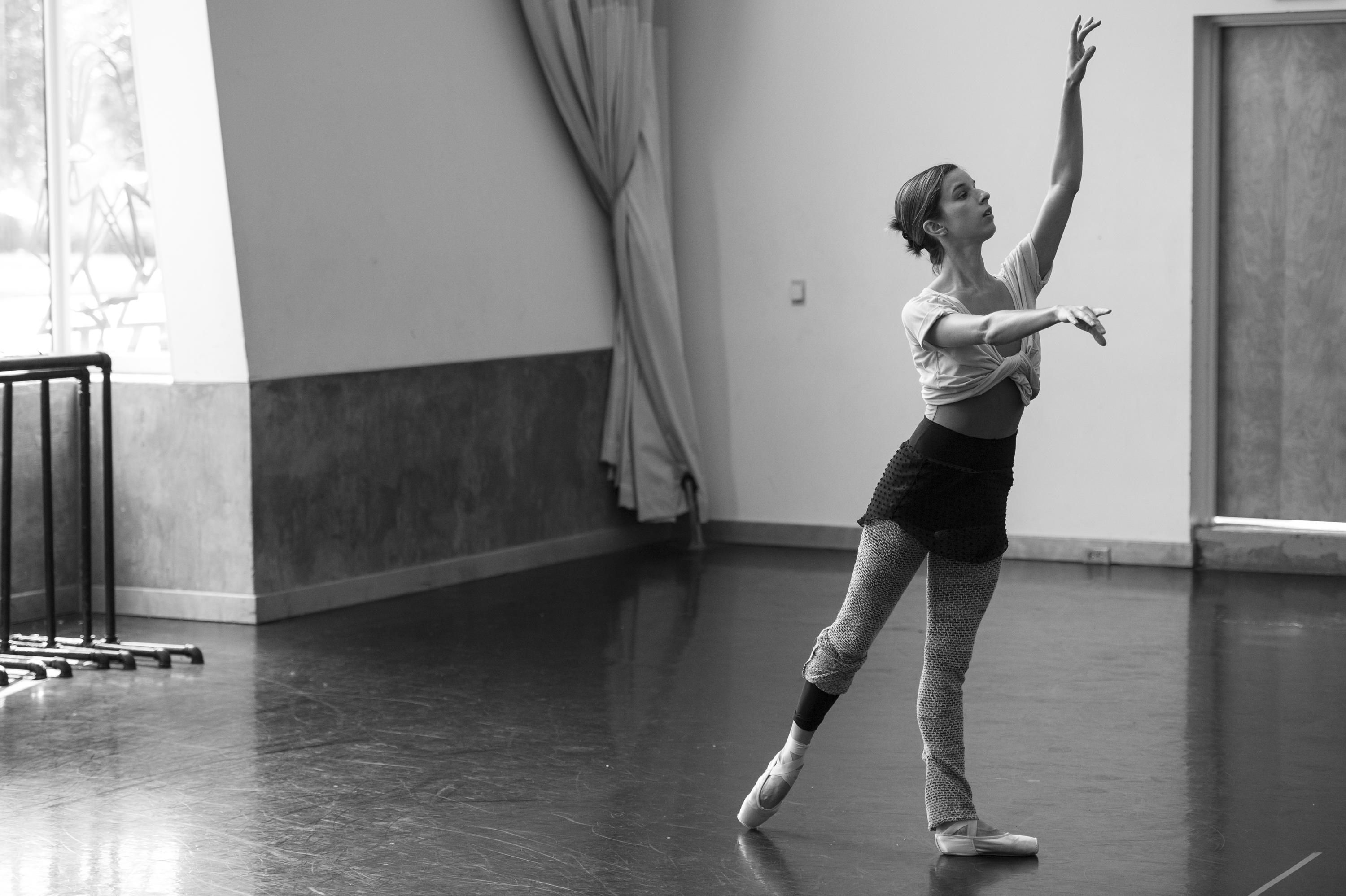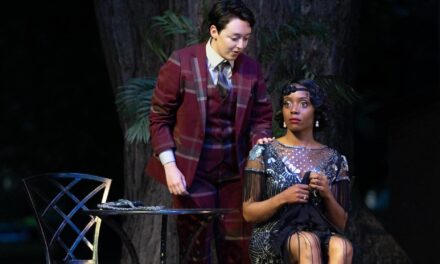Interview by Scott Dowd.
As I write this, the Association of the Louisville Orchestra Musicians have just agreed to a new multi-year contract. Negotiations between the musicians and Louisville Orchestra management, aided by work of Metro Council President Jim King and Mayor Greg Fischer, have come to a close for the moment and planning is underway for Fanfara 2012. The impact of this announcement will be felt throughout the entire community, from Kentucky Opera to the University of Louisville School of Music. For some perspective on what is happening inside the organization and a look ahead to the 2012-2013 season, I turned to a longtime friend, Bob Bernhardt. It has been 30 seasons since Bob joined the Louisville Orchestra as assistant conductor. He now serves as LO’s Principal Pops Conductor and he is also Music Director Emeritus of the Chattanooga Symphony & Opera.
 |
| Bob Bernhardt. Photo by O’Neil Arnold. |
SD: What led you to the decision to step down from the music director’s role in Tennessee?
BB: About five years ago I looked at my wife, Nora, and said, “They want me to stay and things are good. But it may be time for Chattanooga to have a new voice.” I talked with CSO management and we put together a two-year transition plan that included a search for new leadership. Because I suggested it and they didn’t ask me to leave, they asked me to stay. It’s like with athletes – you have to make the decision when it’s time to go. It has been such a wonderful ride here, but I thought I would try to shape my own future.
SD: Whom did they choose to succeed you?
BB: They had nine candidates in over the course of the two years. They finally selected Kayoko Dan. She is just finishing her first year as I’m completing my twentieth here in Chattanooga. It’s interesting because so many things are lining up at the same time. This was also my thirtieth year in Louisville – fifteen of those as Principal Pops Conductor. Due to the situation at the LO, it was somewhat of a bittersweet convergence.
SD: You spoke of shaping your future. What are some of the other orchestras you’re working with?
BB: I’m a frequent guest now with the Edmonton Symphony in Edmonton, Canada. I go there three or four times a year. I’ve recently conducted the Cincinnati Pops, the Baltimore Symphony, the orchestras in Dallas and Houston. And I am really happy to have a continuing relationship with the Boston Pops. I first went there in 1992 and I go back every other year on average.
SD: Is that all?
BB: Well, actually, I have started teaching.
SD: I was just kidding! Where are you teaching on top of all that?
BB: I’m an Artist-In-Residence at Lee University in Cleveland, Tennessee. It’s about a 45-minute drive from Chattanooga. I conduct their orchestra and I’ve just started teaching conducting there.
SD: You obviously enjoy working.
BB: It’s been very rewarding. I began my career at the University of Alabama, and it feels really good to bring that circle around. I love working with the kids, and it feels like a natural and appropriate path. I hate it when people say it’s “giving back,” because they’re giving me as much as I’m giving them.
SD: Is it difficult to juggle all of your commitments and school?
BB: Fortunately, I am able to be on a restricted schedule at Lee so that I can teach and have my professional life, too.
SD: It must be gratifying for you to know that you’re contributing to the future of what I will call “serious music.” It makes me feel like there is a future for it.
BB: Both the musicians in the orchestra and the conducting students ask me about – pardon the trite phrasing – the “real” world of our profession. I’ve had more than 30 years now of ups and downs to be able to give them my realistic view.
SD: You have certainly been witness to the undulations of the Louisville Orchestra.
BB: My first week with the Louisville Orchestra was a strike week! I was there during the period that the orchestra transitioned from per-service (part-time) to full-time. The LO went to Mexico City and as soon as they returned, I was to start as Assistant Conductor. I wanted to go along to Mexico because my wife at the time, Jenny, was in the orchestra and that was her first gig with them. So I paid my own way, and when we got back home there was the labor dispute that culminated in the new model. Thirty-one years later, here we are.
SD: Is there anyone in the organization with more personal history than you at this point?
BB: There are some members of the Orchestra who have been here longer. But in the office there’s only Angela, the receptionist. She was the one who answered the phone when I called about my audition in 1981!
SD: As you look back, what are your overall thoughts about the Louisville Orchestra?
BB: It has certainly been eventful! But for me, it has been almost entirely a joy ride. My relationship with the musicians, many of whom are my longest held and dearest friends, is at the center. They taught me my job, and we have traveled this remarkable music-making journey together. Also, the LO was the first place I worked that allowed me to be myself. I don’t know how else to say it. It is such a privilege to be able to do what I do as a performer and not have to be anything other than who I am. It is one of the greatest gifts I’ve ever received and one of the greatest lessons I’ve learned. When you are able to work in such a job as I’m lucky to have and just be myself…it’s a huge boon. I’ve also had the privilege of working with boards, staff and volunteers all this time who have given so much, committing themselves to great music performed live with excellence.
SD: And audiences love you!
BB: I bribe them all.
SD: Whatever you’re doing, it’s working.
BB: I’ll tell you, that audition in 1981 turned into the luckiest thing that ever happened to me in my career.
SD: So you’re changing the way things are done in Chattanooga?
BB: Right. I’ve actually become the Pops Conductor and I do a couple of specials.
SD: I’m told you will be changing things up here in Louisville, too.
BB: During this past year, we started Classical U, which is an extension of the work I’ve done for 25 years. I actually began this by teaching Elder Hostel classes, and I just loved teaching in my usual style. I always tell people, “Fifty percent of what I’m saying is true and it’s up to you to figure out which half.” We have fun with the music, the composers, the times in which they wrote and playing great music for people who love being there.
SD: How many of those events were there?
BB: I did six installments of Classical U at the Clifton Center. For these classes, I started with the Baroque and ended up in the post-Romantic period. It was a kind of an over-arching, light-hearted history of classical music. We created a Power Point presentation, so there was a visual aspect but, primarily, it was listening to great music and talking about the composers and their lives. The thought was to continue that and possibly have it become a part of NightLites somehow. By the time people are reading this, that plan may be more evolved.
SD: I know a lot of things are being talked about at this point as decisions for the future of the Louisville Orchestra are being made.
BB: Yes, the staff had a retreat and I’ve heard a number of the ideas – but nothing that is confirmed at this point. One of those was to add a concert or a rehearsal, perhaps, to the NightLites series that would allow us to get inside the music more. NightLites is designed to be entertaining and I do talk about the music we do – but I don’t get into the nuts and bolts of the pieces as much. The potential is for this to be Classical U with the musicians of the Louisville Orchestra instead of recordings. That would be enormous fun.
SD: I grew up with Leonard Bernstein’s “Young People’s Concerts” series and I love that model.
BB: Me too. You know the thing that attracts me to my work in Louisville is that I am able to connect audiences to the music with a little humor. As long as it is not detrimental to the product, it is hopefully a way to help people enjoy the moment a little more.
SD: It is supposed to be entertainment, after all. Going to hear the orchestra isn’t supposed to be like going to a symposium.
BB: That has always been kind of my role with the Louisville Orchestra. I’ve done my share of subscription concerts – which I’ve adored – but mostly, I try to present concerts that I hope are exciting, musically excellent and also entertaining.
SD: You are also the Principal Pops Conductor. Can you say anything about that series yet?
BB: Plans at this point are for the Pops series to remain pretty much as it has been. We have some wonderful guest stars we are close to signing…will likely have signed by June.
SD: Will the other series be continuing?
BB: Yes. There may be a new series or a return of Strings Attached.
SD: That’s the series with the Indie bands.
BB: Right. Those are so much fun. My friends up at the Boston Pops recently had a concert that featured one of Louisville’s favorite Indie bands…My Morning Jacket!
SD: Has the WOW! series been discussed?
BB: That has been discussed. I even have some dates on my calendar, though I don’t think the artists have been confirmed yet. I think I can say that there has been talk of a Disney show that would include singers and film.
SD: That sounds like a fun evening.
BB: There are definitely many fun evenings ahead with our orchestra. As I mark 20 years since I began my relationship with the Boston Pops, 20 years in Chattanooga and 30 years with the Louisville Orchestra, everything right now is so hopeful – and I am so looking forward to a year of making music again in Louisville.
Magazine deadlines being what they are, it is difficult to know what the Louisville Orchestra will have announced by the time this interview reaches you. But I am assured that Fanfara is being planned and that the intention is to open the season this September as usual. Supporters, please watch your mailboxes for season announce ments! For more information about the Louisville Orchestra’s 2012-2013 season, go to www.louisvilleorchestra.org or call 502.587.8681.




